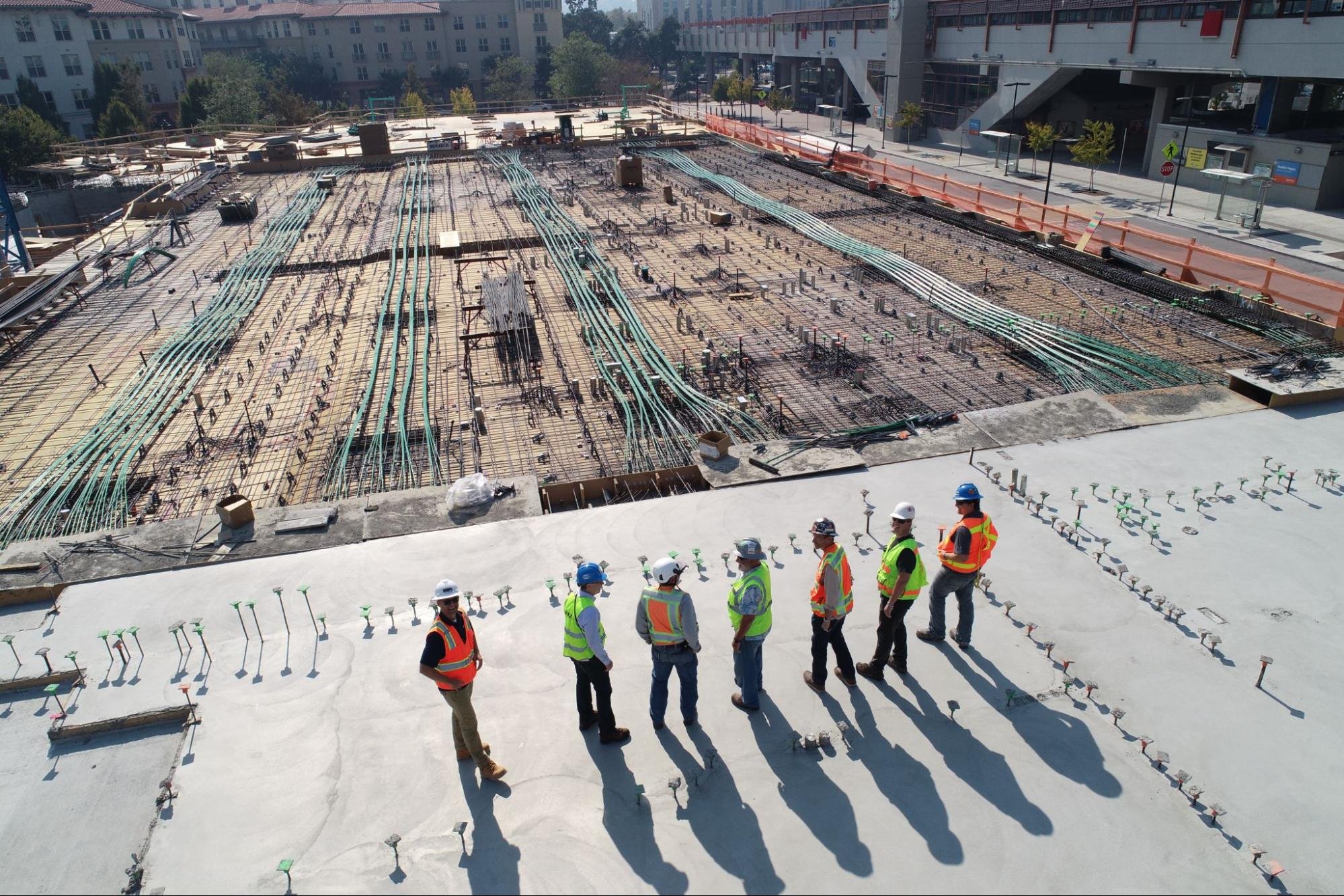Radiant floor heat is a luxury option available to building owners who choose a slab on grade for their construction project. An important consideration as you design your floor heating system is which type of insulation you’ll use to keep the heat in. In this article, we’ll explore your options and make our recommendation for the best under slab insulation.
What is Under Slab Insulation?
Underslab insulation is any type of insulation that is used below a concrete slab on grade (a concrete floor directly on the ground). Common examples of under slab insulation include extruded polystyrene (XPS) and expanded polystyrene (EPS), but there are other lesser-known options on the market that we’ll cover in this article.
Why Do You Need Rigid Foam Under Concrete Slabs?
It’s common sense to add under slab insulation to a concrete foundation when you have radiant floor heating, but do you know all the other advantages to insulating your slab from the underside? Here are a few more incentives to insulate with rigid foam under concrete slabs:
Protection
If you’ve ever noticed a crack in the sidewalk, you’ve seen how susceptible concrete can be to shifting inherently caused by the freeze-thaw cycle. By adding insulation underneath your slab on grade, you are providing a cushion that allows minor expansion and contraction, while also providing a barrier that separates your concrete slab from direct contact with the Earth’s fluctuation in temperatures.
Lower Energy Bills
It’s not just your concrete that you’ll be saving by adding insulation underneath. By adding more thermal resistance with additional insulation, your HVAC system will not have to work as hard to keep your home comfortable. This results in lower energy bills for the building owner as well as increased thermal comfort.
Better Mold and Moisture Control
Mold can become a building owner’s worst nightmare. Don’t let it be yours. Protect your building from condensation, moisture, and mold problems by reducing the temperature variance that causes condensation in the first place. Keep the inside of your home warm with insulation around your building envelope, so that moisture doesn’t condense inside your building.
How to Insulate Under Concrete Slabs
Insulating under concrete slabs is fairly simple. Here are the basic steps to insulate a foundation slab:
Excavate in preparation for concrete pour, taking into account the thickness of your insulation
Make sure the ground surface is level and compacted
Add a bed of gravel several inches deep for proper drainage
Roll out a vapor barrier, such as polyethylene plastic
Lay your foam insulation boards in a solid layer
Seal joints with tape, if desired
Once you’ve installed your insulation and vapor barrier, you’re ready for your slab foundation to be poured.
As an alternative to a separate vapor barrier, you could also opt for a built-in vapor barrier on the facer of your foam board insulation. Also, don’t forget to insulate the slab thickness around the perimeter of your new foundation.
What to Look for in an Under Slab Insulation
Now, let’s take a look at the desirable properties to look for in underslab insulation. This includes things such as:
Water resistance
Sufficient R-value for your geographical region
High compressive strength to support the weight of the concrete without being crushed
Other considerations include durability and code compliance, depending on your location, soil characteristics, and building code requirements.
Comparison of Underslab Insulation Types
Here are the numbers to compare the specifications of common types of underslab insulation:
Note: The data above compares the following products: Foamular® XPS LT30, InsulFoam EPS Type II, and Ecomaxci® FR.
Best Under Slab Insulation By the Numbers: Polyiso
As you can see from the numbers, polyiso outperforms both XPS and EPS in water vapor permanence. This helps keep moisture away from your slab so that the insulation can function at full capacity.
When it comes to water absorption, both polyiso and XPS perform well, and EPS absorbs significantly more water. A minimum compressive strength of 25 psi is recommended for most underslab insulation applications, meaning that both XPS and polyiso meet the criteria.
Finally, to get the most insulating power per inch, polyiso has the highest R-value of the three options.
Here are some polyiso products to consider for your rigid foam insulation under concrete slab.:
RMAX Thermasheath®: Foil-faced polyiso board for concrete foundations
RMAX ECOMAXci® FR: Heavy duty embossed aluminum facer with polyiso foam core
Discover the Best Underslab Insulation with Rmax
The insulation experts at Rmax have the resources and expertise to guide you in choosing the best under slab insulation for your project. Reach out today to get help picking the right insulation for the job!




